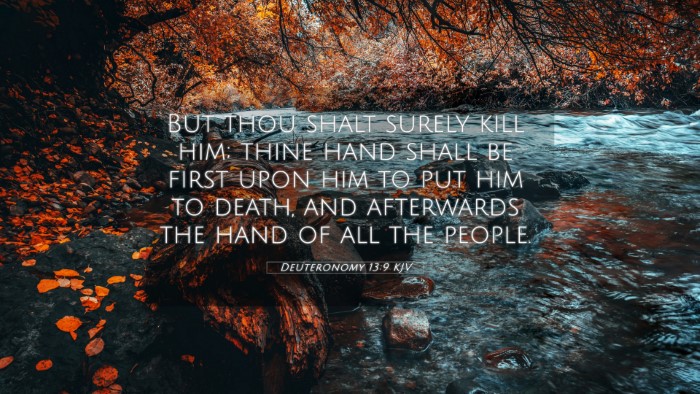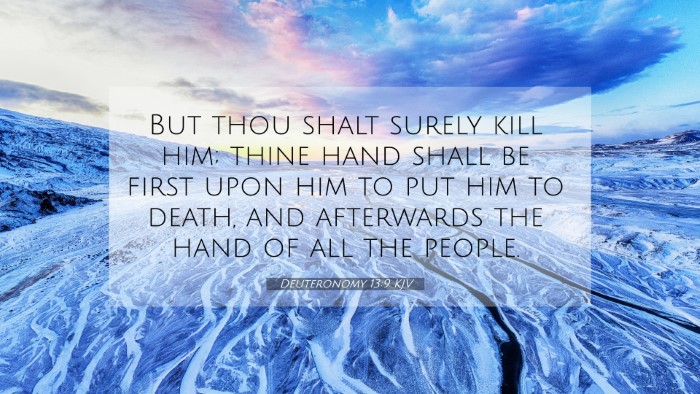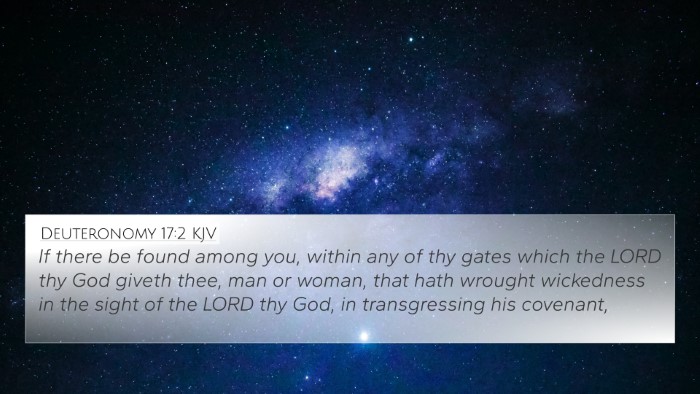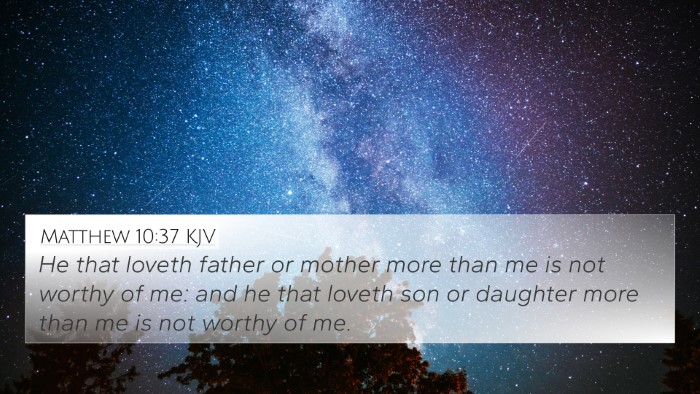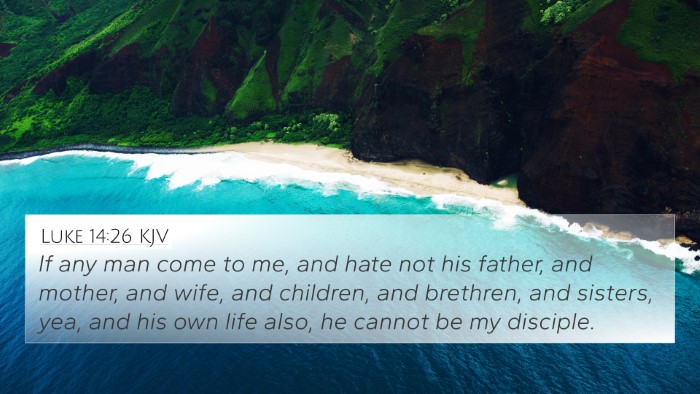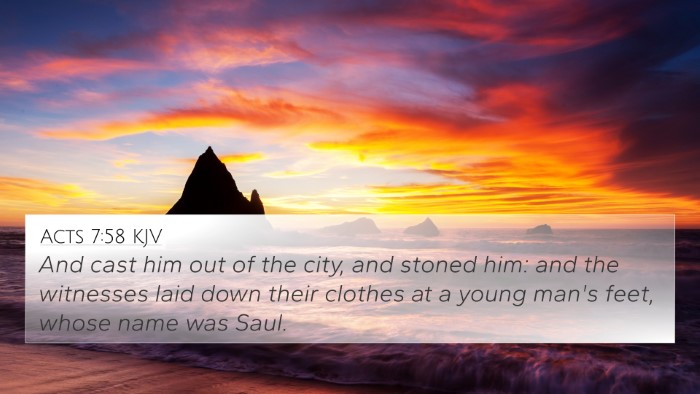Understanding Deuteronomy 13:9
Deuteronomy 13:9: "But you shall put him to death; your hand shall be first against him to put him to death, and afterward the hand of all the people."
This verse conveys a serious message about idolatry and the consequences associated with it in the context of the Israelite community. Here, God emphasizes the need for swift and decisive action against anyone who entices others to worship other gods.
Meaning and Interpretation
Commentators such as Matthew Henry, Albert Barnes, and Adam Clarke offer insights into this verse:
-
Matthew Henry:
Henry explains that this verse is directed against a false prophet or deceiver who leads Israel away from God. The principle here is that communal purity and devotion to Yahweh are paramount, and any threats to that must be dealt with immediately to preserve the nation's integrity.
-
Albert Barnes:
Barnes emphasizes the seriousness of idolatry in the Israelite faith. The punishment serves as a warning to the people about the dangers of seduction away from true worship. He notes the importance of collective action in maintaining faithfulness within the community.
-
Adam Clarke:
Clarke discusses the role of accountability in the community. The instruction that "your hand shall be first against him" implies that individuals are responsible for maintaining spiritual integrity, and that they must take initiative in rejecting false teachings.
Key Themes
This verse touches on several important themes in the Biblical narrative, including:
- The seriousness of idolatry: Deuteronomy 13:9 highlights the detestability of turning away from God.
- Community responsibility: Individuals within the community must act against any form of falsehood to protect their faith.
- Divine judgment: The severe consequence of death signifies God's judgment against those who seek to corrupt His people.
Cross-References
Deuteronomy 13:9 relates to several other Bible verses, which help deepen the understanding of its message:
- Exodus 22:20: "Whoever sacrifices to any god, other than the Lord alone, shall be devoted to destruction."
- Leviticus 20:2: "You shall say to the people of Israel, Any one of the people of Israel, or of the strangers who sojourn in Israel, who gives any of his children to Molech shall surely be put to death."
- Deuteronomy 17:2-5: "If there is found among you, within any of your towns that the Lord your God is giving you, a man or woman who does what is evil in the sight of the Lord your God, and transgresses his covenant..."
- Matthew 5:29-30: "If your right eye causes you to sin, tear it out and throw it away..."
- 1 Corinthians 5:13: "God judges those outside; 'Purge the evil person from among you.'"
- Galatians 1:8: "But even if we or an angel from heaven should preach to you a gospel contrary to the one we preached to you, let him be accursed."
- Revelation 21:8: "But as for the cowardly, the faithless, the detestable, as for murderers, the sexually immoral, sorcerers, idolaters, and all liars, their portion will be in the lake that burns with fire and sulfur, which is the second death."
Practical Applications
Modern readers can derive valuable lessons from this scripture:
- Vigilance against idolatry: This verse serves as a reminder to be vigilant in our faith and avoid any practices that may lead us away from God.
- Community integrity: Spiritual accountability within a community is crucial, and believers must support one another in adhering to their faith.
- Prioritizing God's commandments: Individuals should prioritize their relationship with God and obey His commandments above all else.
Thematic Connections
When cross-referencing Deuteronomy 13:9 with other scriptures, themes such as divine judgment, community responsibility, and the seriousness of worship emerge prominently. It is essential to understand how various Bible verses connect and reinforce the overall biblical narrative.
Conclusion
In summary, Deuteronomy 13:9 serves as a solemn reminder of God's expectations for His people regarding idolatry and faithfulness. The various interpretations from notable commentators, coupled with the cross-references provided, enrich one's understanding of this significant scripture, emphasizing the importance of maintaining spiritual integrity within a community of believers.

